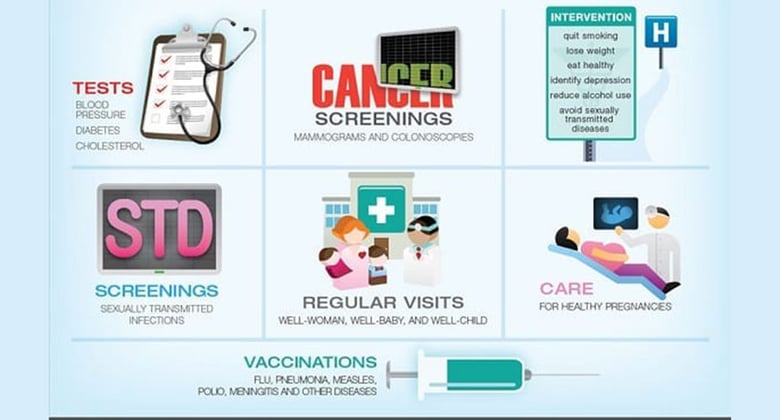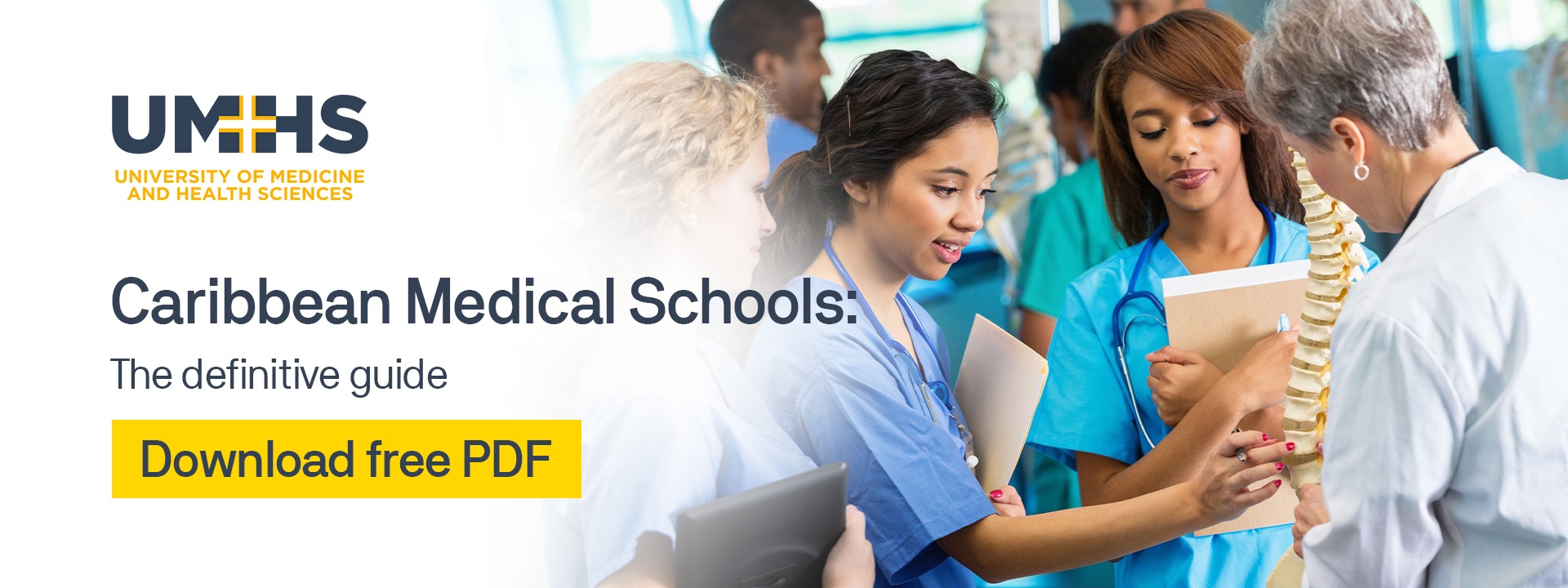Public health experts say preventive medicine is not practiced as much as it needs to be in the USA. The UMHS Endeavour looks at why preventive medicine is important for everyone, and what future doctors at American and Caribbean medical schools should know about this crucial aspect of health care.
Preventive medicine is fairly self-explanatory. It helps patients stay well and helps prevent more serious long-term illnesses.
“Preventive health care must be planned and executed ahead of time, even when illness is absent. You must build healthy habits even when it’s not convenient,” says the website WRF.
Examples of healthy habits include regular exercise, getting enough sleep, avoiding tobacco and excessive alcohol use, and limiting intake of sugar and salt. Preventive medicine includes everything from screening for cancer and other maladies to patients getting regular blood work to look for sexually transmitted diseases, high cholesterol, etc.
Discover if a Caribbean Medical School is right for you.
Learn about the most popular alternative path to becoming a doctor.
Preventive Medicine & Economics
Preventive medicine makes good sense for so many reasons, so why is it such a low priority in the USA? There are many theories, but screening and diagnostic testing cost money that most health insurance companies do not want to spend.
A 2014 Commonwealth Fund survey said the USA ranks at the bottom among 11 other countries in health care, and only ranks third in preventive medicine.
"Based on the analysis, the U.S. healthcare system is poor on various measures such as preventable deaths and infant mortality because one-third of Americans reported skipping tests or treatment because of its high costs," said an article in TechTimes.com.
The USA received poor scores for life expectancy for people aged 60 years, and was third "in preventive care and providing tests and treatments for chronically ill patients," the article said.
A 2013 article Reuters article, “Think Preventive Medicine Will Save Money? Think Again” by Sharon Begley, discussed the many reasons why preventive medicine is not popular in America.
It noted the humanitarian justification for prevention, and also pointed out the following:
- “Move from sick care to health care” by investing “more resources into preventing chronic disease rather than treating it,” based on a report from the nonprofit Trust for America’s Health.
- A 2010 study published in the journal Health Affairs said if 90 percent of the U.S. population used preventive services, “It would save only 0.2 percent of health care spending.”
- Childhood and some adult immunization programs (pneumonia and flu) are “cost-saving,” a 2009 study for the Robert Wood Johnson Foundation noted, since vaccines are inexpensive and many people are vulnerable to the diseases they prevent.
- Counseling adults to use baby aspirin for prevention of cardiovascular diseases is inexpensive and helps prevent heart disease.
- Some cancer screenings (ovarian and testicular cancer, and prostate cancer via PSA tests) “produce essentially no health benefits, causing the U.S. Preventive Services Task Force to recommend against their use.”
- Some chronic, preventable diseases “might be best addressed outside the clinical setting,” said Trust for America’s Health Executive Director Jeffrey Levi. He said wellness programs at YMCAs and health education and screening programs at churches and synagogues could be useful. “But that requires Medicaid to be more flexible in who they’ll reimburse.”
- An expanded definition of preventive medicine, including “extending bus lines to parks so people without cars can go someplace pleasant for physical activity.”
Preventive Health Checklist
The Centers for Disease Control and Prevention (CDC) website has a great checklist page about preventive health.
Doctors can screen and/or help patients for the following:
- Abdominal aortic aneurysm (for men 65 and older who have ever smoked)
- Alcohol use and abuse
- Cholesterol
- Colorectal cancer (recommended for adults 50 to 75; colonoscopy and other tests available)
- Tests for chlamydia, gonorrhea and syphilis
- Depression
- Type 2 diabetes
- Help with healthy eating
- Preventing falls for adults over 65
- Testing for hepatitis C
- HIV testing
- Skin cancer
- Quitting smoking
- Lung cancer screening (for adults age 55 and older)
- Pneumonia vaccine
- Season flu vaccine
- Other vaccines
(Top image) PREVENTIVE MEDICINE: 2014 Commonwealth Fund report says USA ranks at the bottom among 11 other countries in health care, and is in 3rd place for preventive medicine. Photo: CDC.gov
About UMHS:
Built in the tradition of the best US universities, the University of Medicine and Health Sciencesfocuses on individual student attention, maintaining small class sizes and recruiting high-quality faculty. We call this unique approach, “personalized medical education,” and it’s what has led to our unprecedented 96% student retention rate, and outstanding residency placements across the US and Canada. UMHS is challenging everything you thought you knew about Caribbean medical schools.

Scott is Director of Digital Content & Alumni Communications Liaison at UMHS and editor of the UMHS Endeavour blog. When he's not writing about UMHS students, faculty, events, public health, alumni and UMHS research, he writes and edits Broadway theater reviews for a website he publishes in New York City, StageZine.com.

















